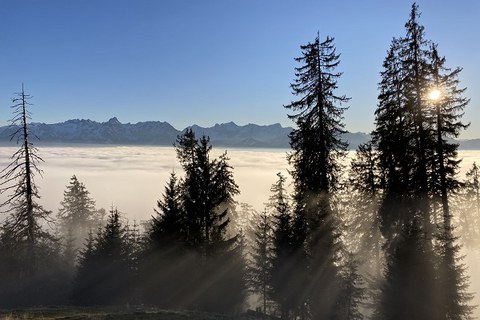Positions
Alpine landscape is not renewable!
Today’s landscape in the Alps is the result of a close relationship between human activities and natural developments. What we call landscape is the result of manifold interactions between ecological, social and cultural factors. CIPRA understands landscape not only in a geographical sense, but as a socially and culturally shaped, personal and communal perception of the environment. Landscape is understood as the result of social action and perception, which is interrelated with those who act and perceive. It thus refers also to the European Landscape Convention.
Landscape also acts as a mediator of physical experience. This experience is not exclusive, but open to all. The users and beneficiaries of landscape are not necessarily its owners. Landscape is also cultural heritage, a manifestation of collective history. Likewise, landscape serves to secure living space and provides vital resources, so-called ecosystem services. Furthermore, it is indispensable for the promotion and protection of biodiversity.
In its structure, the position paper takes up the heterogeneous mosaic of (Alpine) landscapes. It shows the requirements to understand and preserve the formative elements of this landscape mosaic. CIPRA’s approach to landscape is shaped by the two principles of “landscape as commons” and “negotiating landscape” (Chapter 2). The five following demands (Chapter 3) relate to specific landscape uses that are particularly characteristic of the landscape. These are: (3.1) undeveloped landscapes, (3.2) agriculture, (3.3) energy, (3.4) recreation and (3.5) urbanisation. It is precisely in dealing with the undeveloped landscapes that Alpine societies have a great responsibility, as they are rare throughout Europe. For each of the five positions, the trends and challenges are described from CIPRA’s point of view. The demands derived from this point the way to sustainable development in the Alps.
Further information on the different positions and the topic of landscape can also be found in the dossier "Nature and man in the Alps" in all Alpine languages.
Details can be found in the PDF:
| Type | Title |
|---|---|

|
CIPRA Position Paper Landscape |



